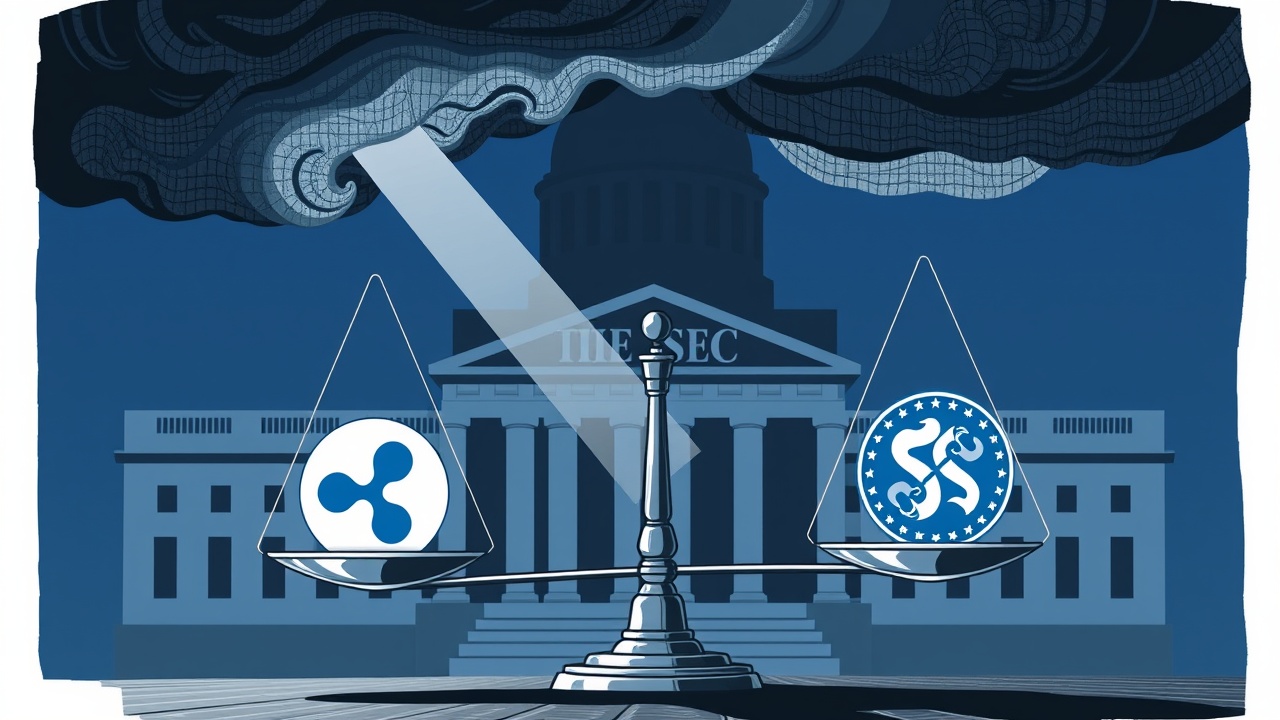Significant Upheaval in the Cryptocurrency Landscape
In the wake of President Donald Trump’s revival of his administration’s prominence, the cryptocurrency landscape in the United States has witnessed significant upheaval. Notably, many figures once viewed as adversaries have departed, while others who embodied hope for the industry are gone. Among those still facing the consequences of what has been labeled a “war on crypto” is Roman Storm, co-founder of Tornado Cash, which is known for its coin mixing functionalities. Storm’s trial is set to commence on Monday in New York, where he faces serious allegations of criminal conspiracy involving money laundering and evasion of U.S. sanctions.
The Role of Jay Clayton
Leading the prosecution in this pivotal case is none other than Jay Clayton, the former chair of the SEC during Trump’s initial term, who has oscillated from being perceived as an adversary to a champion, only to revert to a controversial role again. While current SEC chair, Gary Gensler, has been the focus of much ire from the crypto community, it was Clayton who heralded the increased regulatory scrutiny over the sector. One of his final moves before leaving the SEC was to initiate a landmark $1.3 billion lawsuit against Ripple. This case claimed that Ripple’s sale of its XRP token constituted an illegal offering of unregistered securities—a precedent that has echoed through subsequent SEC actions against other prominent crypto firms.
During his tenure, Clayton oversaw 57 actions against various cryptocurrency entities and projects, a number he notably highlighted as he departed from the agency in 2021. After stepping down, he returned to the legal sector, joining Sullivan & Cromwell, a prestigious law firm, and taking a position on the advisory board of Fireblocks, a company specializing in crypto custody solutions.
Current Legal Proceedings
This past April, Clayton reentered the governmental arena as the interim U.S. Attorney for the Southern District of New York, a role that includes overseeing high-profile prosecutions in various high-stakes cases, including those involving celebrities and the disgraced crypto magnate, Sam Bankman-Fried. Roman Storm, facing charges in a case pursued by the Trump administration, is among those defendants, even as the Treasury Department has recently opted to withdraw its case against Tornado Cash, and as the DOJ indicated a softer stance towards privacy services in the crypto realm.
Leaders within the cryptocurrency sector have largely refrained from disparaging Trump’s administration due to its recent favorable actions towards the industry. However, advocates for decentralized finance (DeFi) and privacy rights harbor concerns that a conviction of Storm, accused of creating a platform aimed at safeguarding users’ transaction privacy, could set a troubling precedent. Such a ruling might jeopardize the very foundation of American DeFi innovations, which represent the core of the cryptocurrency movement. DeFi encompasses a range of applications that facilitate trading without intermediaries, and before entering mainstream exchanges like Coinbase, many innovations initially find a foothold in the DeFi ecosystem.
Implications for the Future of DeFi
Storm has articulated the gravity of his situation, asserting,
“If I lose, DeFi dies with me,”
effectively underlining the stakes involved. Meanwhile, the ongoing legal proceedings, under Clayton’s oversight, have made substantial legal maneuvers to exclude pro-crypto arguments from entering the trial. According to insiders familiar with the SDNY’s workings, the motions submitted by prosecutors are typically overseen by the U.S. Attorney, indicating a complex interplay between different legal actors involved in this high-stakes case.
Scheduled to unfold in lower Manhattan, this trial is poised to be a significant convergence for the cryptocurrency community, not just politically but in terms of the implications for its future. The presiding judge, Katherine Failla, previously dealt with the SEC’s extensive lawsuit against Coinbase, which culminated in dismissal earlier this year under the Trump administration’s influence.




